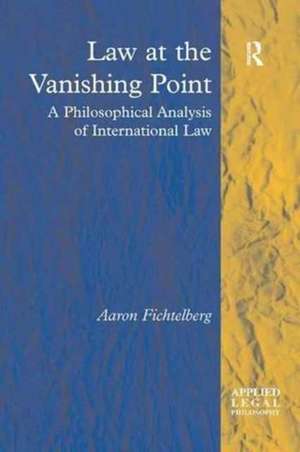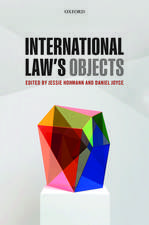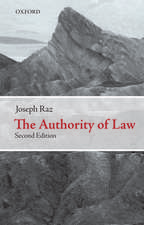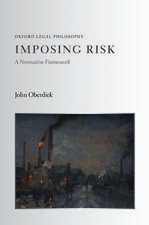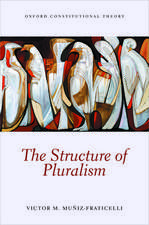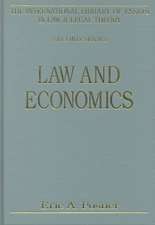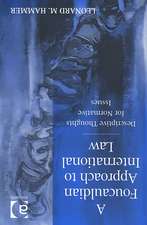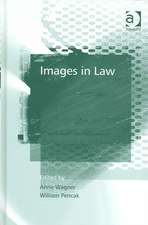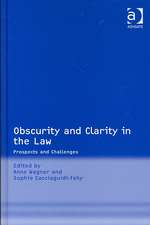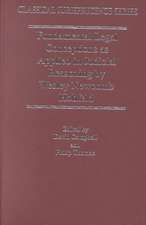Law at the Vanishing Point: A Philosophical Analysis of International Law: Applied Legal Philosophy
Autor Aaron Fichtelbergen Limba Engleză Paperback – 15 noi 2016
| Toate formatele și edițiile | Preț | Express |
|---|---|---|
| Paperback (1) | 323.23 lei 6-8 săpt. | |
| Taylor & Francis – 15 noi 2016 | 323.23 lei 6-8 săpt. | |
| Hardback (1) | 700.75 lei 6-8 săpt. | |
| Taylor & Francis – 28 mai 2008 | 700.75 lei 6-8 săpt. |
Din seria Applied Legal Philosophy
- 30%
 Preț: 850.99 lei
Preț: 850.99 lei - 18%
 Preț: 1001.07 lei
Preț: 1001.07 lei - 27%
 Preț: 997.69 lei
Preț: 997.69 lei - 18%
 Preț: 1059.45 lei
Preț: 1059.45 lei - 24%
 Preț: 325.01 lei
Preț: 325.01 lei - 30%
 Preț: 777.27 lei
Preț: 777.27 lei -
 Preț: 469.34 lei
Preț: 469.34 lei - 31%
 Preț: 764.20 lei
Preț: 764.20 lei -
 Preț: 489.26 lei
Preț: 489.26 lei - 25%
 Preț: 830.92 lei
Preț: 830.92 lei - 28%
 Preț: 824.70 lei
Preț: 824.70 lei -
 Preț: 469.34 lei
Preț: 469.34 lei -
 Preț: 469.34 lei
Preț: 469.34 lei - 18%
 Preț: 1058.38 lei
Preț: 1058.38 lei - 30%
 Preț: 770.33 lei
Preț: 770.33 lei - 29%
 Preț: 792.93 lei
Preț: 792.93 lei - 28%
 Preț: 823.08 lei
Preț: 823.08 lei -
 Preț: 469.34 lei
Preț: 469.34 lei - 18%
 Preț: 700.75 lei
Preț: 700.75 lei - 18%
 Preț: 1054.71 lei
Preț: 1054.71 lei - 28%
 Preț: 824.53 lei
Preț: 824.53 lei - 18%
 Preț: 1054.71 lei
Preț: 1054.71 lei - 18%
 Preț: 703.93 lei
Preț: 703.93 lei - 31%
 Preț: 764.20 lei
Preț: 764.20 lei -
 Preț: 389.66 lei
Preț: 389.66 lei -
 Preț: 489.26 lei
Preț: 489.26 lei - 18%
 Preț: 1110.92 lei
Preț: 1110.92 lei - 18%
 Preț: 1062.26 lei
Preț: 1062.26 lei - 18%
 Preț: 1003.43 lei
Preț: 1003.43 lei - 18%
 Preț: 1000.27 lei
Preț: 1000.27 lei -
 Preț: 436.14 lei
Preț: 436.14 lei - 15%
 Preț: 443.36 lei
Preț: 443.36 lei - 18%
 Preț: 1054.71 lei
Preț: 1054.71 lei -
 Preț: 481.58 lei
Preț: 481.58 lei - 18%
 Preț: 1059.45 lei
Preț: 1059.45 lei - 15%
 Preț: 698.17 lei
Preț: 698.17 lei - 18%
 Preț: 1163.63 lei
Preț: 1163.63 lei - 18%
 Preț: 1009.21 lei
Preț: 1009.21 lei - 28%
 Preț: 821.13 lei
Preț: 821.13 lei - 18%
 Preț: 1054.71 lei
Preț: 1054.71 lei - 20%
 Preț: 249.77 lei
Preț: 249.77 lei
Preț: 323.23 lei
Nou
Puncte Express: 485
Preț estimativ în valută:
61.86€ • 67.17$ • 51.96£
61.86€ • 67.17$ • 51.96£
Carte tipărită la comandă
Livrare economică 22 aprilie-06 mai
Preluare comenzi: 021 569.72.76
Specificații
ISBN-13: 9781138266278
ISBN-10: 1138266272
Pagini: 244
Dimensiuni: 156 x 234 mm
Greutate: 0.45 kg
Ediția:1
Editura: Taylor & Francis
Colecția Routledge
Seria Applied Legal Philosophy
Locul publicării:Oxford, United Kingdom
ISBN-10: 1138266272
Pagini: 244
Dimensiuni: 156 x 234 mm
Greutate: 0.45 kg
Ediția:1
Editura: Taylor & Francis
Colecția Routledge
Seria Applied Legal Philosophy
Locul publicării:Oxford, United Kingdom
Notă biografică
Professor Fichtelberg specializes in International Criminal Justice, Comparative Criminal Justice, and Legal Theory, in the Department of Sociology and Criminal Justice, University of Delaware. He has published widely on aspects of International Criminal Law, and International Criminal Justice. He is the author of the textbook `Crimes Without Borders: An Introduction to International Criminal Justice'.
Recenzii
'Those who are skeptical about the existence and power of international law should read Fichtelberg’s book. Arguing more from various examples of international law, rather than from abstract and questionable principles, he will convince many of these skeptics to abandon their cause. Believers will also profit by reading his book. They will come away with a better understanding of their own views on international law.' Nick Fotion, Emory University, Atlanta, USA 'For forty odd years I have made a living teaching, writing about and sometimes even doing international law. Yet I have been consistently haunted and taunted by those who deny that the subject is "real". Fichtelberg slays all the dragons that I have encountered in a lifetime - and then some. Spot on!' Roger S. Clark, Rutgers School of Law, USA '...[this book] offers both a good overview and a strong argument as to why we should spend less time focusing on theory and more examining the law as it should be...a valuable addition to the literature.' Law Society Journal 'Recommended. Upper-division undergraduate through professional collections. CHOICE
Cuprins
Introduction The Future and Legal Theory; Chapter 1 Skepticism Towards International Law; Chapter 2 Conceptualizing International Law; Chapter 3 Voluntarism and Natural Law; Chapter 4 International Legal Personality; Chapter 5 Humanitarian Intervention; Chapter 6 Empiricism and the Reality of International Law; Chapter 7 Pinochet and Nicaragua; Chapter 8 The Prescriptive Realists; conclution Conclusion;
Descriere
This volume examines the philosophical foundations of modern international law using the tools of Anglo-American legal theory and western political thought. It provides a fascinating new challenge to those who reduce international law to either ethics or politics and provides a critical new appraisal of its power as an independent force in human social relations.
